| Coach | NA |
| Venue | Stade Francis Le Basser |
Laval Trivia
Laval predictions
Predictions for Laval: See upcoming and historic predictions for Laval below.
Disclaimer: Past performance does not guarantee future results. Betting involves risk; only wager what you can afford to lose. Always gamble responsibly.
Laval Opinions
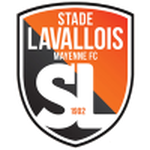 Who is the most iconic player in Laval's history?
Who is the most iconic player in Laval's history?
Laval latest transfers
| Date | Player | From | To | Price |
|---|---|---|---|---|
| 2023-07-17 | D. Sylla | Laval | Lorient | € 1M |
| 2018-07-03 | O. Solet | Laval | Lyon | € 550K |
| 2017-01-06 | N. Mukiele | Laval | Montpellier | € 1.5M |
| 2013-01-14 | L. Rose | Laval | Valenciennes | € 1.5M |
Ligue 2 standings
| Rank | Team | MP | W | D | L | GF | GA | GD | Pts |
|---|---|---|---|---|---|---|---|---|---|
| 1 |
 Auxerre
Auxerre
|
29 | 15 | 10 | 4 | 53 | 28 | 25 | 55 |
| 2 |
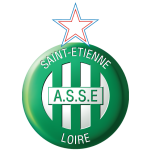 Saint Etienne
Saint Etienne
|
30 | 15 | 6 | 9 | 38 | 23 | 15 | 51 |
| 3 |
 Angers
Angers
|
29 | 15 | 5 | 9 | 42 | 32 | 10 | 50 |
| 4 |
 Laval
Laval
|
29 | 13 | 9 | 7 | 35 | 29 | 6 | 48 |
| 5 |
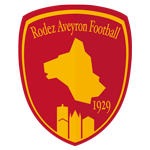 Rodez
Rodez
|
29 | 11 | 10 | 8 | 47 | 40 | 7 | 43 |
| 6 |
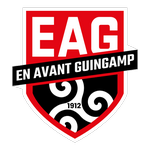 Guingamp
Guingamp
|
29 | 11 | 9 | 9 | 37 | 31 | 6 | 42 |
| 7 |
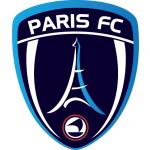 Paris FC
Paris FC
|
29 | 11 | 9 | 9 | 34 | 30 | 4 | 42 |
| 8 |
 Caen
Caen
|
29 | 12 | 6 | 11 | 39 | 37 | 2 | 42 |
| 9 |
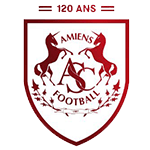 Amiens
Amiens
|
29 | 10 | 12 | 7 | 26 | 27 | -1 | 42 |
| 10 |
 Grenoble
Grenoble
|
29 | 10 | 10 | 9 | 36 | 33 | 3 | 40 |
| 11 |
 PAU
PAU
|
29 | 10 | 10 | 9 | 42 | 42 | 0 | 40 |
| 12 |
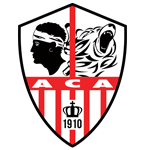 Ajaccio
Ajaccio
|
29 | 10 | 8 | 11 | 28 | 33 | -5 | 38 |
| 13 |
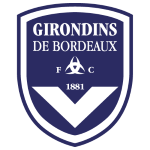 Bordeaux
Bordeaux
|
29 | 10 | 8 | 11 | 32 | 37 | -5 | 37 |
| 14 |
 Dunkerque
Dunkerque
|
29 | 10 | 7 | 12 | 29 | 40 | -11 | 37 |
| 15 |
 Estac Troyes
Estac Troyes
|
29 | 8 | 11 | 10 | 33 | 36 | -3 | 35 |
| 16 |
 Bastia
Bastia
|
29 | 9 | 7 | 13 | 29 | 37 | -8 | 33 |
| 17 |
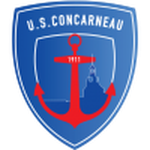 Concarneau
Concarneau
|
29 | 9 | 6 | 14 | 30 | 40 | -10 | 33 |
| 17 |
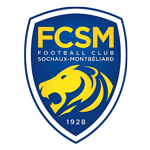 Sochaux
Sochaux
|
0 | 0 | 0 | 0 | 0 | 0 | 0 | 0 |
| 18 |
 Annecy
Annecy
|
29 | 7 | 9 | 13 | 33 | 40 | -7 | 30 |
| 19 |
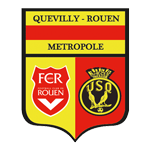 Quevilly
Quevilly
|
29 | 5 | 13 | 11 | 35 | 38 | -3 | 28 |
| 20 |
 Valenciennes
Valenciennes
|
30 | 2 | 11 | 17 | 17 | 42 | -25 | 17 |
About Laval
Stade Lavallois Mayenne Football Club, commonly known as Laval, is a professional football club based in Laval, Mayenne, France. Founded in 1902, Laval has a rich history spanning over a century, marked by notable achievements, memorable players, and a passionate fan base.
Laval's primary colors are orange and black, earning them the nickname "Les Tangos". They play their home games at the Stade Francis Le Basser, a stadium with a capacity of over 18,000 spectators. The club's emblem, a stylized orange and black lion, is a symbol of strength and determination, reflecting the team's spirit on the pitch.
In its early years, Laval played in regional leagues until it turned professional in 1934. The club spent most of its professional life in the second tier of French football, Ligue 2. However, it has had several stints in the top flight, Ligue 1, with the most significant period being from 1976 to 1989. During this time, Laval produced some of the finest talents in French football and competed against the country's best teams.
One of Laval's most notable achievements was reaching the quarter-finals of the Coupe de France in 1983 and 2007. Despite not having a major trophy to their name, Laval has consistently demonstrated a high level of competitiveness and resilience, often punching above their weight against more established teams.
Over the years, Laval has been a breeding ground for talented players. Notable alumni include Jocelyn Gourvennec, who went on to become a successful manager, and Antoine Kombouaré, who had a distinguished playing career before turning to management.
In recent years, Laval has faced some challenges, including financial difficulties and relegation to the Championnat National, the third tier of French football. However, the club remains committed to its philosophy of developing young talents and playing attractive football. The club's youth academy is one of the most respected in France, producing players who have gone on to play in Ligue 1 and other top European leagues.
Despite the ups and downs, Laval's loyal fan base has remained steadfast. The supporters, known as the 'Tango Army', are renowned for their passion and dedication, creating an electrifying atmosphere at home games.
Off the pitch, Laval is deeply rooted in its community. The club runs various social initiatives, including programs for underprivileged children and partnerships with local schools and charities. The club's commitment to its community reflects its belief in the power of football to bring people together and make a positive impact.
In conclusion, Stade Lavallois Mayenne Football Club is more than just a football club. It is a symbol of the city of Laval, a source of pride for its people, and a testament to the enduring spirit of the beautiful game. Despite the challenges it has faced, Laval continues to strive for excellence, driven by a passion for football and a deep commitment to its community.















